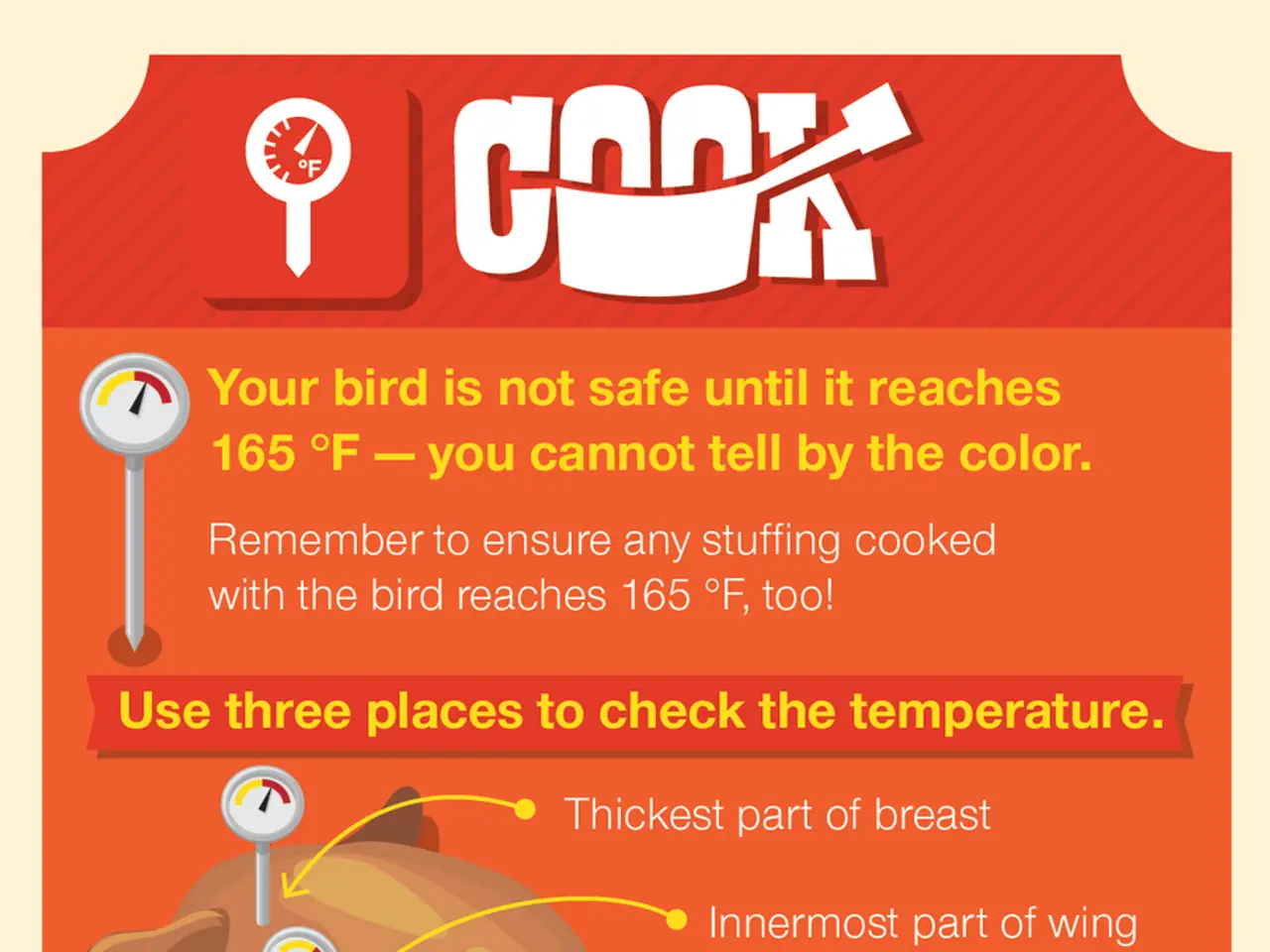Got Dirty Chicken at Edeka? Activists Claim So, Here's the Lowdown
Specialists assert that poultry flesh derived from ailing livestock is a concern.
The goss is circulating about the supermarket chain, Edeka, and it ain't all rosy. Animal welfare activists have been digging up some funky business with the chicken meat the store is selling. The allegation? It's coming from chickens that are straight-up not right. Let's dive into this shitstorm.
Sick Chickens Infiltrating Edeka
Yup, you heard it right. Several chicken samples seem to have told the tale: chicken meat offered by Edeka under the "Good & Cheap" brand is suspected to hail from chickenas that are a tad under the weather. The probe was carried out by the non-profit organization "Albert Schweitzer Foundation for our Environment." Now, questions are being raised loud and clear. And this isn't the first time a supermarket chain has found itself in the cross-hairs of animal welfare watchdogs. Discount retailers like Lidl and Aldi have also faced criticism in the past.
The ailment crawling under Edeka's (or should we say chicken) skin is described by the foundation as muscle fattening. But it's not just a superficial issue, they say; it's a red flag for animal cruelty. This condition, shown as "White Striping," is a health disorder that primarily affects broiler chickens. When fat builds up in their muscle tissue, it causes the tissue to die. Basically, it's a symptom of mass-produced chickens bred for rapid growth.
[Side Note]Science 101: Muscle fattening happens when chickens are selectively bred to grow rapidly and sport abnormally large breast muscles. To achieve this, they're sometimes fed specific diets or given added nutrients that promote muscle growth. The downside? These chickens suffer from physical discomfort, health problems, and a reduced quality of life. Plus, the meat from these fleeced birds might not be as nutritionally balanced or safe as you'd expect.
Edeka's Response: What the Supermarket Has to Say
A store in Ravensburg seems to have had some chicken issues. Apparently, eight out of nine samples were affected, the foundation reveals. The tested meat samples were chicken breast fillets from the "Good & Cheap" brand. Edeka, however, is not laying low. They argue that the criticism is a tad generalized and unfairly singles them out.
The retailer also throws out the claim that they're working toward offering meat from higher animal welfare standards by 2030. While muscle fattening impact the quality of the meat, making it fattier and less protein-rich, the health scare for consumers isn't as alarming, as per the experts. Animal welfare advocates, however, continue to emphasize the ethical issue.
Now that you're up-to-speed, you can make a more informed decision if your next chicken dinner comes from Edeka. And remember, just because it's cheap doesn't always mean it's a good deal. Stay vigilant, consumers!
For more informed shoppers, explore Chocolate brand removes many products from supermarkets and investigate Industrial farming's dirty secrets exposed.
- Animal welfare activists have discovered an issue with the chicken meat sold by Edeka, a supermarket chain in Europe, claiming the meat comes from unhealthy chickens.
- The non-profit organization "Albert Schweitzer Foundation for our Environment" discovered the condition known as muscle fattening in samples of chicken meat from Edeka's "Good & Cheap" brand, which they argue is a symptom of animal cruelty.
- Science shows that muscle fattening is caused by chickens being selectively bred to grow rapidly and have abnormally large breast muscles, often through specific diets or added nutrients that promote muscle growth, leading to physical discomfort and health problems for the chickens and potentially affecting the nutritional value and safety of the meat.
- Edeka has responded to the criticism, stating that they aim to offer meat from higher animal welfare standards by 2030, but animal welfare advocates continue to emphasize the ethical issue, urging consumers to stay vigilant and make informed choices about their food and lifestyle, including food and drink, health and wellness, fitness and exercise, and healthy diets.








